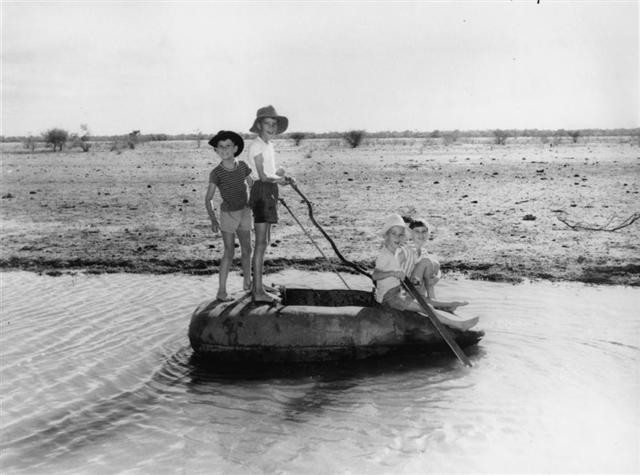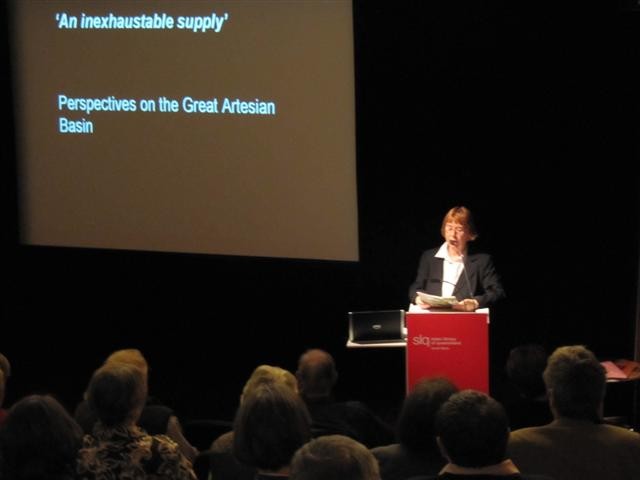Liquid Gold: How the Great Artesian Basin shaped Queensland's development
By JOL Admin | 16 June 2010
The Great Artesian Basin provides the only reliable source of freshwater through much of inland Australia. The basin is the largest and deepest in the world, covering a total of 1,711,000 square kilometres with temperatures measured ranging from 30°C to 100°c. It underlies 23% of the continent, including most of Queensland, the south-east corner of the Northern Territory, the north-east part of South Australia and northern New South Wales. The basin is 3,000 metres deep in places and is estimated to contain 64,900 cubic kilometres of groundwater.


In today's Out of the Port lunchtime lecture professional historian Thom Blake argued that the Great Artesian Basin played a crucial role in shaping Queensland's development. Despite being one of the state's best known geological features its social and economic history has been largely overlooked such that it barely rates a mention in histories of Queensland.
Thom's presentation was well recieved by the large audience in attendance and will be made available as a web caste through the State Library's website.
Out of the Port lunchtime lectures are held at the State Library on the 3rd Wednesday of every month at 12.30pm in Auditorium 2, level 2. The series is presented by the State Library in association with the Department of Environment and Resource Management Heritage branch.
Join us on 21 July when author, curator and anthropologist Michael Aird considers the topic of photography and aboriginal identity in South East Queensland.
Comments
Your email address will not be published.
We welcome relevant, respectful comments.